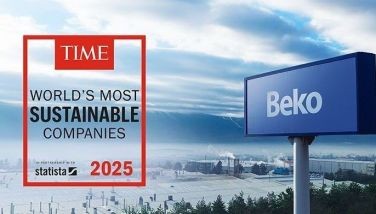Startups can reshape the world
I am seeing a wave of very promising startups seeking to change the world we live in. The modern, millennial entrepreneur is very different from the previous generation who were seeking to build a better mousetrap, or do something incrementally better. The last generation of entrepreneurs were mostly looking to serve an unfulfilled commercial or consumer need.
This new generation of entrepreneurs wants to reshape the world we live in. They believe in radical improvement, or change from the way things are being done. Their business models are centered around addressing a real world problem. When we look at the host of doomsday scenarios on the horizon resulting from issues such as climate change, these startups provide a glimmer of hope.
Startups are some of the best R&D labs in the world. They also have the benefit of not being “conflicted,” or tied to the current system. This allows entrepreneurs to draw on a blank canvas that allows fundamental and disruptive models. As part of my year-ender I would like to share some of the out-of-the-box solutions being espoused by startups today.
Here are some pie-in-the-sky climate change solutions:
• Curtis Struck is an innovator proposing the idea of “moon dust mining.” The dust mined from the moon can be used to create a shield or barrier between the Sun and Earth. Assuming this can be done once a month providing a 20-hour shield (vs. 720 hours per month) or 2.77-percent coverage, this would theoretically be sufficient to slow down the increase in Earth’s temperature due to climate change.
• Another wacky but equally ingenious idea is to deploy 600,000 square miles of a mirror-like wall that would reflect back heat and light to the Sun. Another proposal is deploying a sulphur-based spray around the world’s atmosphere, creating a barrier that would reduce sunlight hitting earth and therefore slowing down temperature increase. The proposed annual cost is 515 million euros, a cheap price to pay to delay climate change.
The challenge is understanding the safety and efficacy of these solutions. The unfortunate reality is many of these will not see funding until there are no other clear alternatives. The world seems to be focused on preventive solutions rather than cures. “Preventive” means finding a way to bring down carbon emissions, which is the cause of climate change.
Although not as daring to the imagination, I am seeing inspiring grassroots-based initiatives that can provide real value to communities. Some of these were presented during the SME Summit during APEC week in Manila.
• Our very own Aisa Mijeno, who is the founder of Salt Lamps, was thrust into the limelight and became an instant celebrity during APEC when she was interviewed by Jack Ma and President Obama. As the name suggests, salt lamps use primarily saline solution to provide eight hours of light. The maintenance cost of the component that creates the reaction leading to light only costs $6 per year (assuming eight hours of use daily). The goal is to eliminate the use of kerosene or battery-operated lamps, which are bad for the environment.
• Waster Enterprisers are leading the “poop revolution,” turning waste into fuel. In the city of Accra, Ghana, trucks dump 250,000 gallons of human feces onto the beach and ocean. Waster Enterprisers seeks to collect this, and process it via heat and pressure into fuel. This form of fuel is highly efficient and eco-friendly. There are thousands — if not tens of thousands — of such locations around the world that need this.
• DayOne Response provides a lightweight reusable water-treatment device that has its own water-purification system. The company has already provided over seven million liters of clean water in less than a year. There is a real need for this in disaster-prone areas.
• Alok Shetty designed flood-proof houses for under US$300 using discarded materials such as bamboo and wood. This proved to be a real life-saving solution for the urban and rural poor. Time magazine has described him as part of a new “breed of entrepreneurs finding solutions for a country undergoing rapid and social change, some of which leave India’s poorest behind.”
• Abra is a peer-to-peer platform/app that allows its users to send and receive money electronically. What is revolutionary about Abra is that there is no intermediary holding the funds. It is a pure “p2p” model. This brings down the costs enabling micro-transactions, which will help bring in a large portion of society still using cash that are unbanked. The adoption of p2p platforms by SMEs and the bottom of the pyramid is a key pillar to financial inclusion.
* * *
Any comments or questions? Please email me at egtheplayer@gmail.com.




















